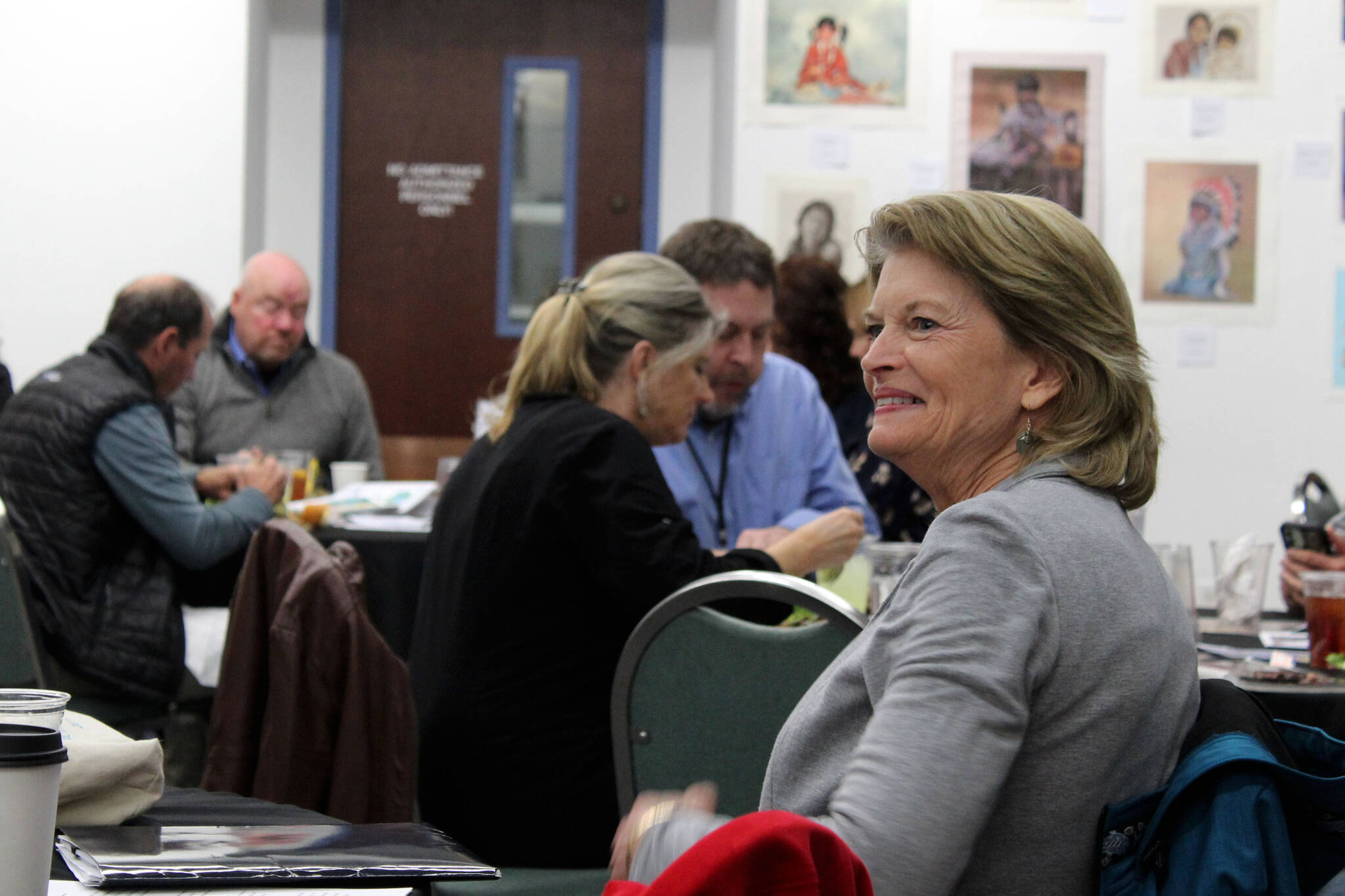A memorial service for Kenai River sportfishing titan Bob Penney, good fishing and a meeting with Kenai Peninsula Borough officials were among the circumstances that brought U.S. Sen. Lisa Murkowski to the central peninsula last week.
Speaking from a picnic table Aug. 1 at Odie’s Deli in Soldotna, Murkowski caught up the Clarion on Kenai Peninsula projects, oil and gas resources and what it looks like to collaborate with local government to get things done.
When it comes to the Alaska LNG Project, Murkowski said the project is in a “good place” with permits from the Federal Energy Regulatory Commission. She is working, she said, to secure a loan guarantee for the project, which is estimated to cost between $40 billion and $50 billion.
“The opportunity for a federal loan backstop is one that the state has been seeking and we worked to include within the infrastructure bill, so that authorization is in place,” Murkowski said.
She said she’s currently working to ensure that federal backstop will be available for the project in light of a “technical hurdle” with the Department of Energy about how that guarantee would be implemented.
Murkowski said that financial incentives offered by the State of Alaska to oil and gas operators, while expensive, have historically facilitated an increased interest in production in the area. She said she “strongly disagree(s)” with importing liquefied natural gas from abroad.
“For (Alaska) now to be that state that has been able to provide for others, now in a position where we’re going to be seeking this from another country … we’re a state that is awash in gas,” she said. “We’re awash in oil and gas.”
Murkowski said she’s concerned about looming oil and gas shortages in the Cook Inlet basin and said Alaska shouldn’t be afraid of exploring new energy pathways. The Cook Inlet basin, she said, is a field that’s “been worked pretty hard.”
“I think we need to be challenged,” Murkowski said. “I think we need to be challenged hard as to how we’re going to take care of ourselves. And if it’s not more gas, what are you going to do to fill in that void here?”
Oil and gas isn’t the only resource Alaska has to offer. There’s also the potential for energy development through non-traditional channels, such as wind and solar power, tidal energy and hydroelectricity, among others.
Murkowski said Aug. 1 that earlier on Tuesday she met with Kenai Peninsula Borough Mayor Micciche and city staff around the borough to talk about local priorities. She said those included transportation safety including the Cooper Landing Bypass Project and fire hazard mitigation such as spruce bark beetle mitigation.
Those conversations, along with other community visits, she said, help inform the projects she tries to include in legislation that goes before Congress. For the current federal fiscal year, Murkowski said her office received about 1,400 appropriation requests from entities through Alaska. She said all are important, but there’s always more money needed than is available.
“I might have $100 million worth of water and wastewater projects that have been submitted to me by communities across the state,” she said, for example. “I know that in that account, I might only be allocated, let’s say $25 million. So how do we make that cut? That’s where it becomes a little more complicated.”
Murkowski’s office has touted numerous Alaska projects secured in federal spending bills, including the 12 appropriations bills voted out of the Senate Appropriations Committee last week.
Included in those bills are numerous projects on the Kenai Peninsula, such as $2.74 million for a project that would convert methane gas at the Central Peninsula Landfill to energy, $5 million for the renovation of South Peninsula Hospital and $500,000 for Peninsula Community Health Services to establish a medical facility in Salamatof.
Other appropriations bills include $655,000 for flood mitigation in Seward, $110,000 for emergency care equipment for the Soldotna Police Department and a 5.2% raise for U.S. Coast Guard military personnel.
“I’m proud to put my name behind these community things because these communities have worked hard,” she said. “They’re trying to get the support that they need and that’s my job to listen to them and to do just that.”
Reach reporter Ashlyn O’Hara at ashlyn.ohara@peninsulaclarion.com.


